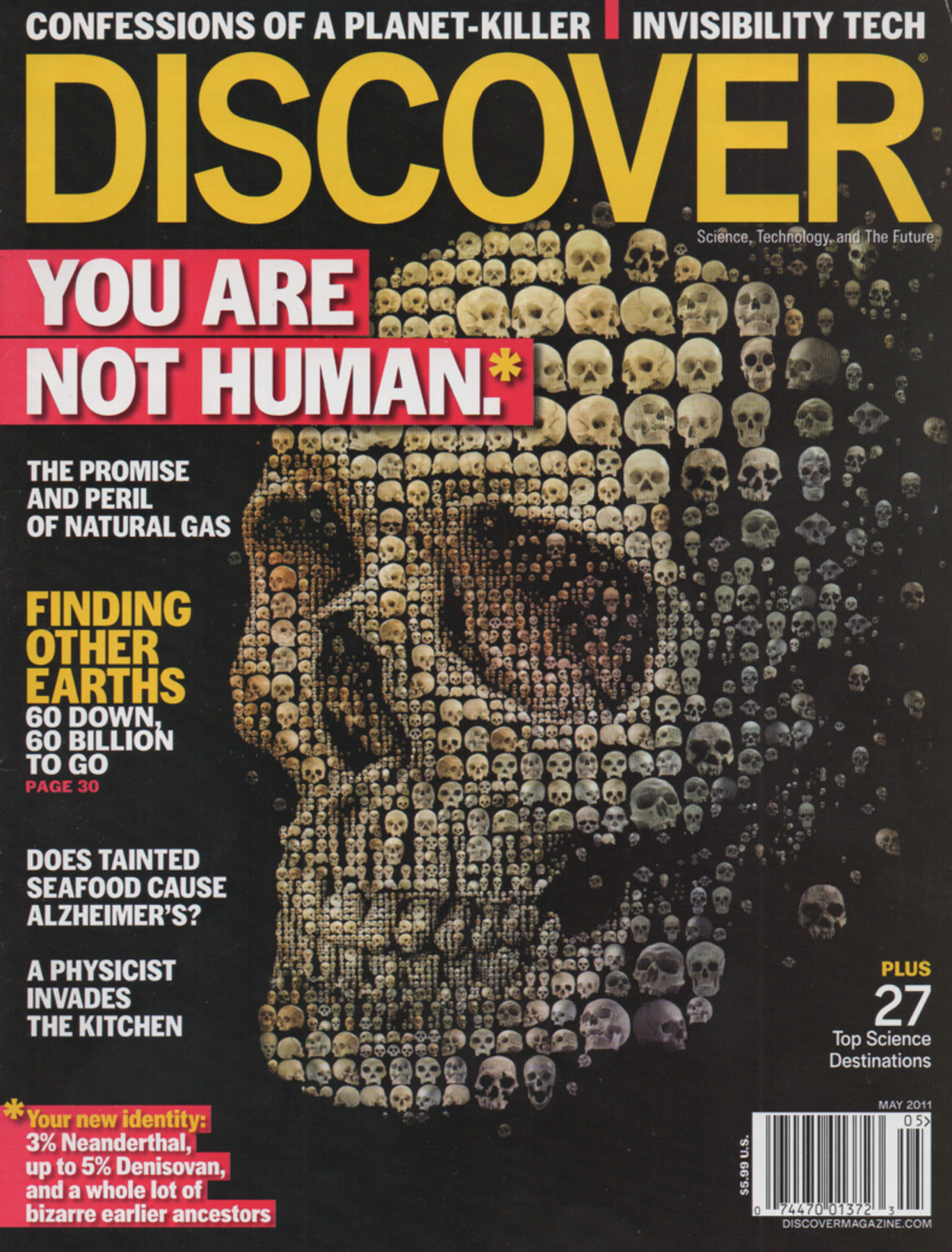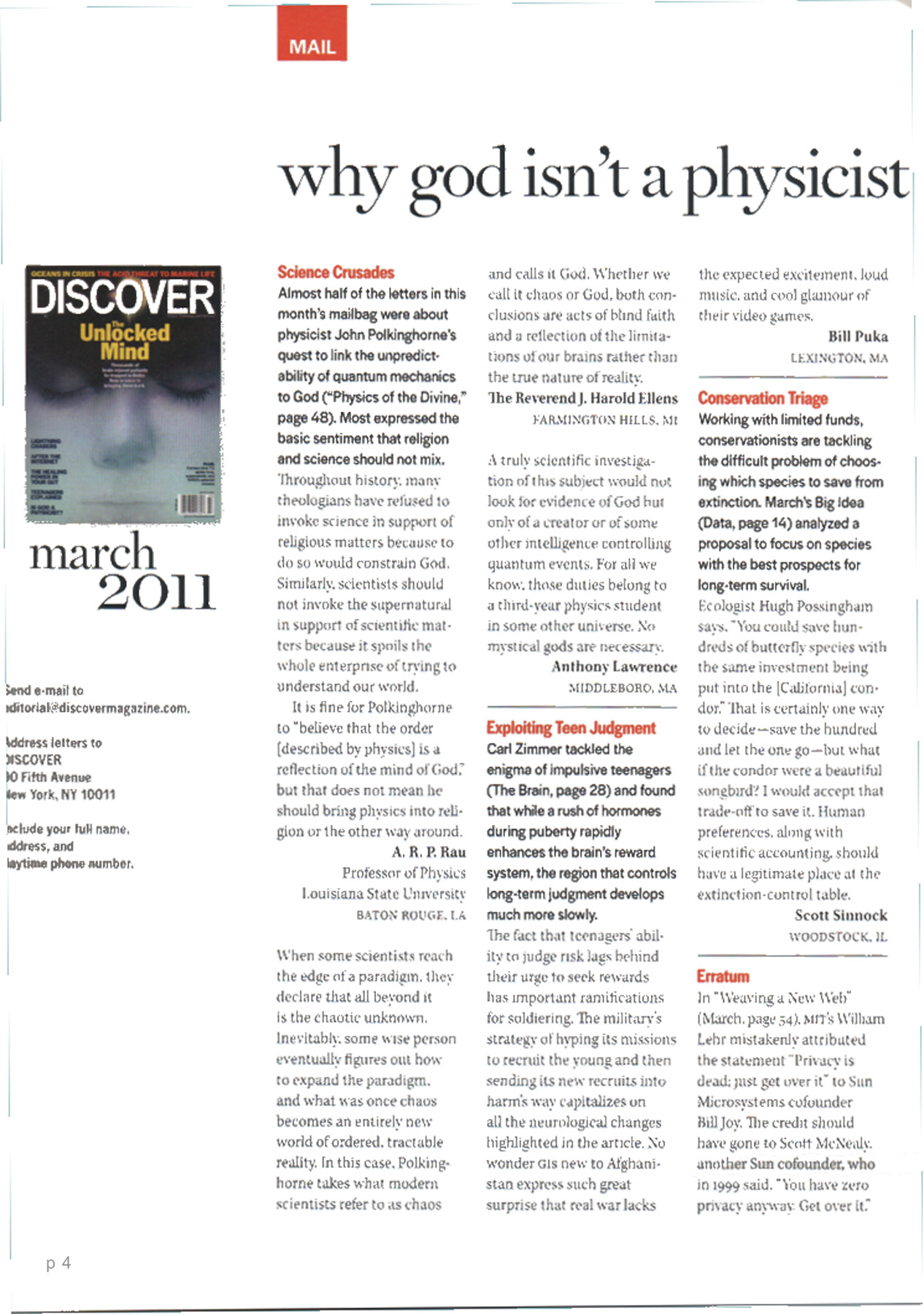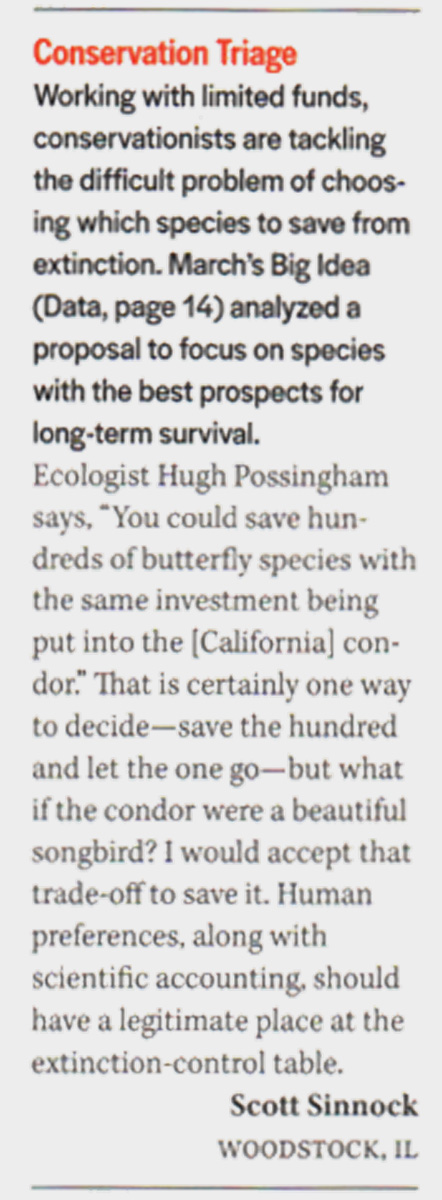 Index
Index 
20110208 Science (species triage)
|
Discover published a much abstracted quote from this letter in the subsequent May, 2011 issue (see images below) To: editorial@discovermagazine.com From: Scott Sinnock ssinnock@netzero.com, 3:49 am, Feb. 8, 2011 Subject: Mail Section, submission for consideration In reading the “Should conservationists allow some species to die out?” (as if they have a choice) on page 14 of the recently arrived March 2011 issue of Discover, I was led to thoughts of the incessant march of human-influenced extinction from woolly mammoths to dodo birds to Tasmanian tigers, extinct due in large part either to direct human killing or significant human influence. It seems obvious that the rate of such extinction is doubly logarithmic, once for human population growth and once for energy produced per human. With all countries, without exception, eagerly pursuing economic growth I see no indication that either of these exponential trends will abate soon, though perhaps population will stabilize at a destructive level of 9 to 11 billion in a century or so. As the article makes clear, there are and will be symbolic efforts by zoos and conservation groups to address our concern for the carnage, carnage created, in part, by flying in the stratosphere on the way to international conservation meetings to lament the rising and destructive impact of humans. Carnage also caused by the multitude of other things we consider, what shall I say, “deserved?”, such as my computer used to compose and transmit this letter, our cars, our homes, even our jobs. So the carnage is here we can only react. Some conservationists, according to the article, implied a species accounting for the inevitable triage, one even saying, “You could save hundreds of butterfly species with the same investment being put into the condor”. That is certainly one way to decide, save the hundred and let the one go, but, maybe because of genetic kinship, that tradeoff seems about right to me. I much prefer listening to a song bird on a warm summer’s eve than watching the flitting of the nearby butterflies. But what a choice: make do without one to perhaps keep another. Human preferences as well as scientific accounting have a legitimate place at the extinction-control table, which of course is intensely political, as, necessarily then, is this article, and the very issue of species extinction itself. Scott Sinnock 205 West Todd Avenue, Apartment 205 Woodstock, IL 60098 815.206.0634 Magazine Cover Page Letter    |